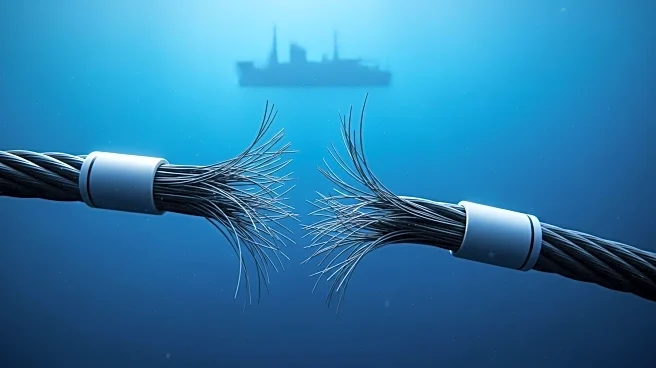What's Happening?
A Helsinki court has ruled that Finland has no jurisdiction in the case against the Eagle S oil tanker, accused of damaging subsea cables. The Finnish government alleged that the ship, suspected to be part of Russia's 'shadow fleet,' deliberately damaged the cables before entering Finnish waters. The court's decision means Finland may have to cover the defendants' legal fees, estimated at €200,000. The case has implications for intercontinental connectivity and highlights challenges in regulating maritime activities.
Why It's Important?
The ruling underscores the complexities of international maritime law and jurisdiction, particularly when dealing with suspected illegal activities by foreign vessels. The case highlights the difficulties in holding accountable ships that operate outside territorial waters, which can impact global connectivity and security. The decision may influence future legal approaches to similar incidents and prompt discussions on international cooperation in maritime regulation.
What's Next?
The Finnish government may seek alternative legal avenues or international support to address the issue of subsea cable damage. The case could lead to increased scrutiny of ships suspected of engaging in illegal activities and prompt calls for stronger international regulations to protect critical infrastructure.
Beyond the Headlines
The case raises broader questions about the security of global communication networks and the role of international law in protecting them. It highlights the need for collaboration among nations to address threats to infrastructure and ensure reliable connectivity.










